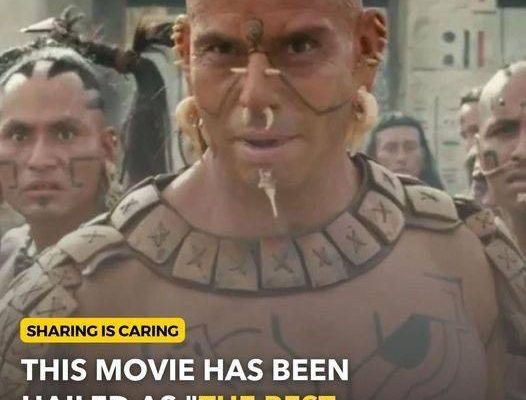Many people consider Mel Gibson’s 2006 historical drama Apocalypto to be among the greatest historical dramas ever made.
The film, which takes place in pre-Columbian Mesoamerica, has enthralled viewers with its vivid narrative and distinctive cultural representation.
The movie has drawn criticism for historical mistakes and contentious portrayals of Mayan civilization, despite its positive reviews.
The story of Jaguar Paw, a young Mayan guy who has to free himself from slavery and save his family, is told in Apocalypto.
The whole movie is spoken in Yucatec Maya, which gives it an authentic touch that many viewers found impressive.
Both critics and viewers have lauded the film for its compelling story and striking images; well-known people like Martin Scorsese have referred to it as “a masterpiece” and Spike Lee has listed it as a must-see for his NYU students.1.

Historical Inaccuracies
Although Apocalypto has been praised, its historical errors have also drawn criticism. According to the movie, corruption and internal warfare are about to bring down Mayan civilization. The introductory statement by historian Will Durant, “A great civilization is not conquered from without until it has destroyed itself from within,” is consistent with this portrayal. Nevertheless, this story oversimplifies the multitude of intricate circumstances that contributed to the Mayan civilization’s downfall.

Depiction of Violence
The film’s horrific representations of human sacrifice and its extreme violence have also caused controversy. Anthropologists Mary Weismantel and Cynthia Robin contend that by portraying the ancient Maya as “bloodthirsty and immoral,” the movie perpetuates unfavorable assumptions about Indigenous societies. Since the movie’s depiction of human sacrifice leans more toward Aztec customs than Mayan customs, it is especially controversial.2.
Cultural Representation
Apocalypto manages to depict a universe that is both immersive and highly detailed, even with its limitations. It is admirable that the movie uses native actors and the Yucatec Maya language. The passionate and nuanced portrayal of Jaguar Paw by Rudy Youngblood is particularly noteworthy. The movie presents a complex picture of Mayan culture by capturing both the cruelty and the humanity of its characters.
Comparison to Other Historical Films
Not just Apocalypto, but several historical dramas have been criticized for their veracity. A lot of well-known films play around with historical facts. For example, Gibson’s Braveheart and The Patriot have both drawn criticism for their historical exaggerations.3. Historians and viewers have given these movies mixed ratings since they frequently place more emphasis on theatrical storytelling than rigorous historical accuracy.
Impact and Legacy
Notwithstanding the criticisms, Apocalypto has had a profound effect on audiences and filmmakers alike. Their daring storytelling and distinctive visual aesthetic continue to influence historical plays. The popularity of the movie shows that there is a big demand for narratives from lesser-known cultures and eras.

Ethical Considerations
The way historical events are portrayed in movies has important ethical ramifications. Filmmakers have an obligation to fairly and truthfully depict historical civilizations, in addition to their desire to tell captivating stories. Apocalypto emphasizes the fine line that must be drawn between artistic license and historical accuracy.

Audience Reception
Apocalypto continues to enjoy a generally excellent review from audiences, with many people enjoying its bold storytelling and audacious approach. Some are worried, though, about how violence is portrayed in it and how it can reinforce negative preconceptions. This conflicting response highlights how difficult it is to make historical dramas that are both enjoyable and instructive.

Conclusion
Many people consider Apocalypto to be one of the greatest historical dramas ever made, despite its contentious portrayals and historical inaccuracies. There is no denying the movie’s effect on audiences and its contribution to the genre. It raises concerns about how filmmakers portray historical events and how these stories affect how we perceive the past, similar to many historical dramas.
Please SHARE this story with Family and Friends and let us know what you think about this in the comments!





